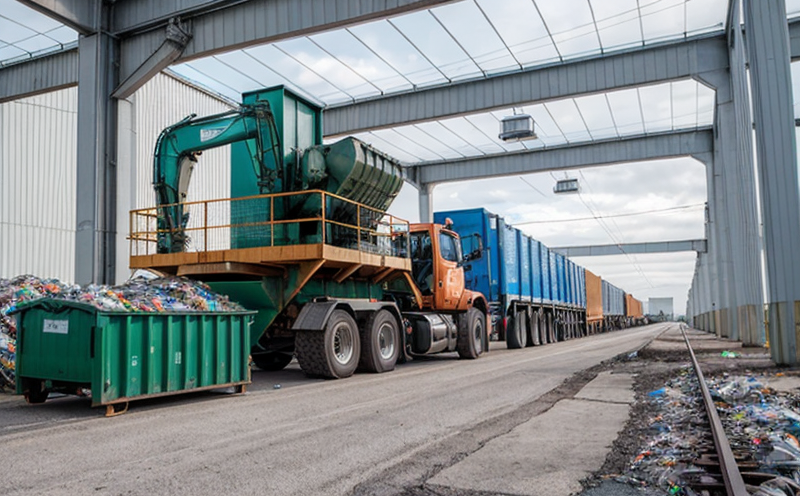ISO 16620 Biobased Plastics Recycling Testing
The ISO 16620 standard provides a comprehensive framework for assessing the biobased content of plastics. This service focuses on evaluating the percentage of biomass in polymers, which is crucial for manufacturers seeking to recycle and upcycle bioplastics efficiently. Understanding the biobased composition helps ensure that recycled materials meet quality standards, thus facilitating circular economy practices.
Recycling biobased plastics presents unique challenges due to their diverse chemical structures compared to conventional fossil-based polymers. Proper testing is essential for optimizing recycling processes and ensuring product integrity. This service leverages advanced analytical techniques such as nuclear magnetic resonance (NMR), gas chromatography-mass spectrometry (GC-MS), and Fourier-transform infrared spectroscopy (FTIR) to accurately measure the biobased content.
The testing process involves several steps: sample collection, preparation, and analysis. Samples are typically collected from various stages of the recycling process, including raw materials, intermediates, and final products. Specimen preparation may include grinding, homogenization, or dissolution depending on the polymer type.
Once prepared, samples undergo detailed analysis using multiple techniques to determine their biobased content. NMR is used for its high sensitivity in identifying carbon signals from different sources. GC-MS provides precise molecular weight distribution and composition data. FTIR helps confirm functional groups indicative of biomass origin. These methods collectively offer a robust assessment of the recycled material's biobased nature.
Accurate measurement of biobased content is vital for ensuring that recycled products meet regulatory requirements and maintain brand reputation. By providing reliable test results, this service supports compliance with international standards like ISO 16620-1, which specifies the determination of the biobased carbon in plastics.
Manufacturers can leverage these insights to improve product design, enhance sustainability credentials, and meet growing consumer demand for eco-friendly options. The ability to recycle bioplastics effectively opens new markets and opportunities within the circular economy framework.
Why It Matters
The global shift towards a more sustainable future has intensified the need for effective recycling processes in industrial manufacturing. Biobased plastics, derived from renewable resources like cornstarch or sugarcane, offer an environmentally friendly alternative to traditional fossil-based polymers. However, their distinct chemical properties make recycling them challenging.
Accurate measurement of biobased content is critical for several reasons:
- Ensuring that recycled products meet quality standards and maintain brand reputation
- Facilitating compliance with international standards such as ISO 16620-1
- Promoting the use of renewable resources in manufacturing processes
- Enhancing product design for better sustainability credentials
By providing precise test results, this service helps manufacturers optimize their recycling efforts and contribute to a more circular economy. It also aids in meeting growing consumer demand for eco-friendly products, thereby enhancing brand reputation and market competitiveness.
Benefits
- Enhanced Quality Control: Accurate measurement of biobased content ensures that recycled materials meet the required quality standards.
- Improved Compliance: Ensures adherence to international standards like ISO 16620-1, facilitating compliance with regulatory requirements.
- Sustainability Leadership: Demonstrates a commitment to sustainable practices, enhancing brand reputation and market competitiveness.
- Innovation Opportunities: Provides insights into product design for better sustainability credentials, opening new markets within the circular economy framework.
Competitive Advantage and Market Impact
Implementing ISO 16620 biobased plastics recycling testing can provide significant competitive advantages and market impact:
- Innovation Leadership: Stay ahead of competitors by offering innovative solutions that align with global sustainability trends.
- Better Product Integrity: Ensure consistent product quality, which is crucial for maintaining customer trust and satisfaction.
- Regulatory Compliance: Demonstrate compliance with international standards, thereby reducing the risk of legal issues and penalties.
- Sustainability Leadership: Position your company as a leader in sustainability, attracting eco-conscious consumers and partners.
In today's market, where consumer demand for sustainable products is increasing, being able to accurately measure biobased content can set you apart from competitors. This service not only helps meet regulatory requirements but also enhances your company's reputation as a responsible corporate citizen.





